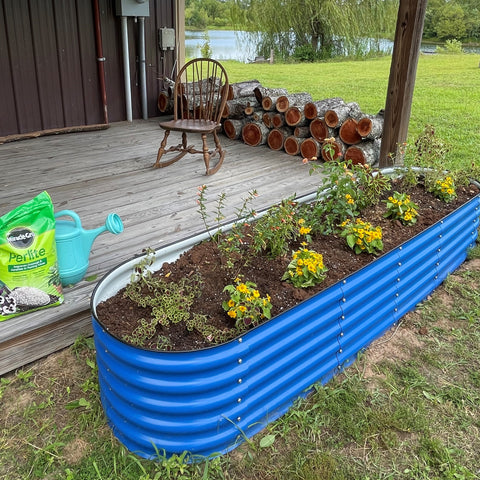Knowledge from Olle Garden Bed: Softened Water And Plants
Some areas have hard water, which contains a lot of minerals. Softened water is common in these areas. Softened water tastes better and is easier to handle at home, but what about plants in the garden? Can you water plants with softened water? The following content also has some reference value for raised garden beds.

What is demineralized water?
Softened water is treated water, usually with sodium or potassium, to help remove minerals from hard water.
Can you use softened water on plants?
Most of the time, it is not a good idea to water the garden with softened water. The reason is that softened water usually contains a large amount of sodium, which is obtained from salt. Most plants can't stand a lot of salt. Sodium in softened water will actually disturb the water balance in plants, and can kill plants by "fooling" them into thinking that they absorb more water than they do. Softened water will basically cause the plants in the garden to die of thirst.
Softening the salt in the water will not only harm the plants irrigated with it, but also the salt in the water will accumulate in your soil, making it difficult for future plants to grow.
Soft water house and watering
This does not mean that if you have soft water, you cannot water your garden and lawn. If you have softened water, you have several choices.
First, you can install the bypass socket. This means that you can install a special faucet outside the house to take water from the pipe before treating it in the water softener.
Second, you can try mixing softened water with collected rainwater or distilled water. This dilutes the role of salt in softening water, making it less harmful to plants. However, please note that salt in softened water will still accumulate in the soil. It is important to regularly test the salt content of the soil.

How to treat the soil affected by softened water
If your soil is watered too much with softened water, you need to work hard to correct the salt level in the soil. There is no chemical method to reduce the salt content in the soil, but you can do this manually by watering the affected soil frequently. This is called leaching.
Leaching pulls salt out of the soil and pushes it deeper or washes it away. Although leaching will help to extract salt from the affected soil, it will also absorb nutrients and minerals needed for plant growth. This means you need to ensure that these nutrients and minerals are added back to the soil.
